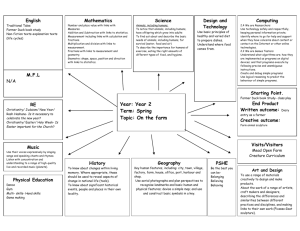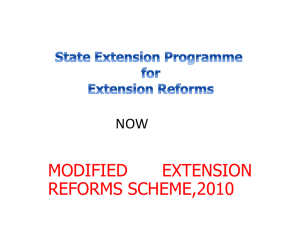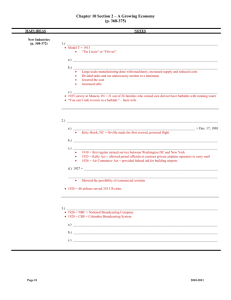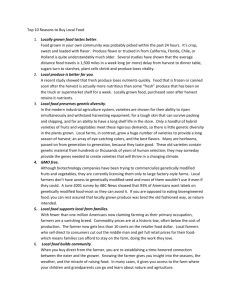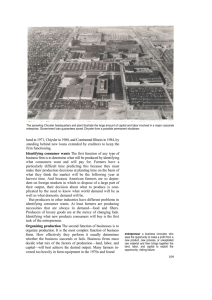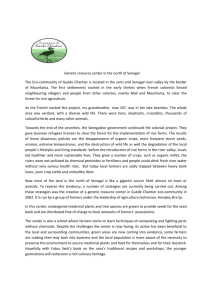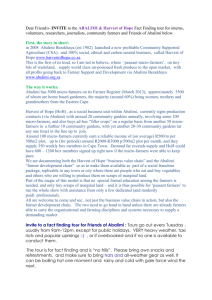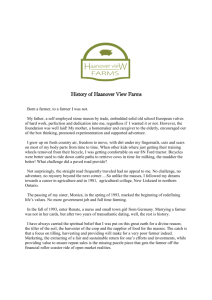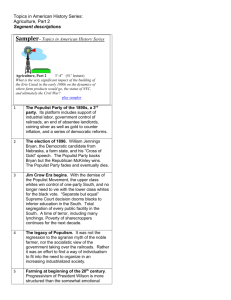FARM HOUSEHOLD SERVEY
advertisement
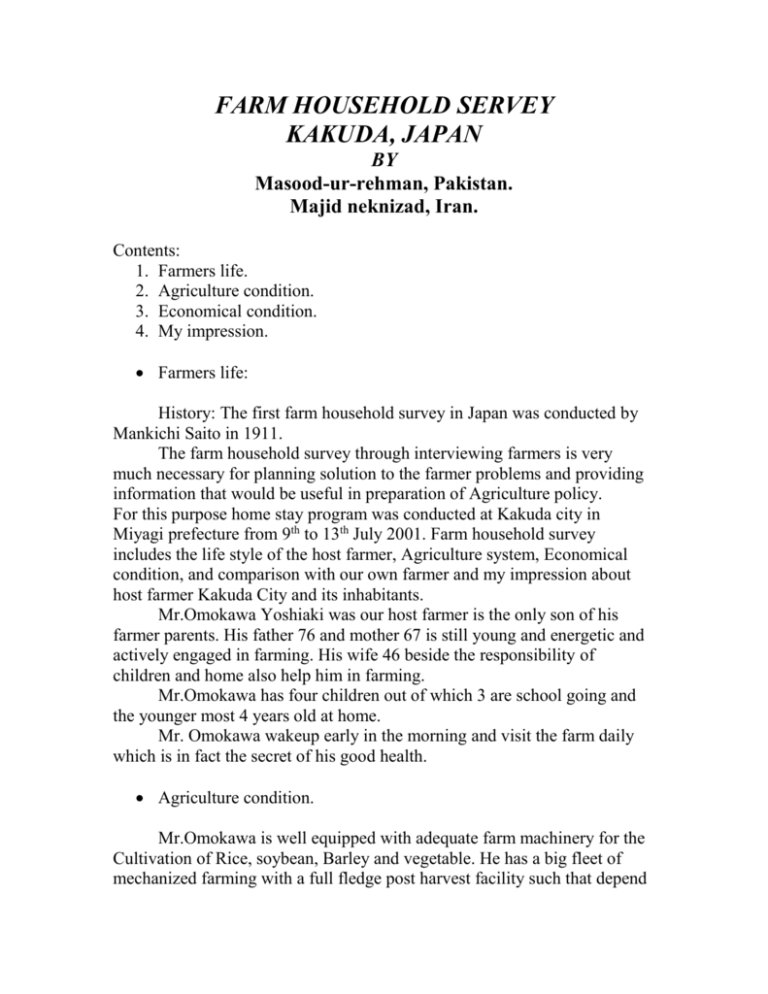
FARM HOUSEHOLD SERVEY KAKUDA, JAPAN BY Masood-ur-rehman, Pakistan. Majid neknizad, Iran. Contents: 1. Farmers life. 2. Agriculture condition. 3. Economical condition. 4. My impression. Farmers life: History: The first farm household survey in Japan was conducted by Mankichi Saito in 1911. The farm household survey through interviewing farmers is very much necessary for planning solution to the farmer problems and providing information that would be useful in preparation of Agriculture policy. For this purpose home stay program was conducted at Kakuda city in Miyagi prefecture from 9th to 13th July 2001. Farm household survey includes the life style of the host farmer, Agriculture system, Economical condition, and comparison with our own farmer and my impression about host farmer Kakuda City and its inhabitants. Mr.Omokawa Yoshiaki was our host farmer is the only son of his farmer parents. His father 76 and mother 67 is still young and energetic and actively engaged in farming. His wife 46 beside the responsibility of children and home also help him in farming. Mr.Omokawa has four children out of which 3 are school going and the younger most 4 years old at home. Mr. Omokawa wakeup early in the morning and visit the farm daily which is in fact the secret of his good health. Agriculture condition. Mr.Omokawa is well equipped with adequate farm machinery for the Cultivation of Rice, soybean, Barley and vegetable. He has a big fleet of mechanized farming with a full fledge post harvest facility such that depend on any farmer or organization for his pre or post harvest operations. He own post harvest facility like drying, milling, polishing and packing for his own rice as well as for the other farmers. The machinery and equipment are old but in a good enough condition. Generally he operates all the machinery and carry out minor repair when necessary. He also own pipe green house for vegetable cultivation. Mr.Omokawa’s farm machinery and equipment are well serviced, clean and packed in the farm shed. Economical condition: Mr.Omokawa’s expenditures on building and machinery i.e. pre and post harvest are highest. Marketing is done by the cooperative society. The price of the produce depends on the quality, variety and the production condition such as organic or safety production methods. Mr.Omokawa sells his rice at the rate of 300-333 yen / Kg. Mr.Omokawa also sale directly safety polished rice to the consumers. Total income and expenditure on cultivation of 21.8 ha of land under Rice, soybean, and barley is as follows. Gross income: Total cost + Tax: Net income: Subsidy (Converted land): Total net income: 27,260,115 21,770,890 5,489,225 4,000,000 9,489,225 Comparison: Japan Pakistan Iran Gross income Yen / ha Expenditure Yen / ha 31,260,115 225,000 215,000 21,770,890 56,000 48,500 Net Yen / ha 9,489,225 169,000 166,500 Impression: Visit to Kakuda was very much interesting and impressive in all respect. Warm welcome by the Mayer of the city, high gentry, and progressive farmers of Kakuda falls an everlasting impression in our mind. Mr.Omokawa and his left an unforgettable impression in our hearts; they are of course a perfect family. In agronomic aspect, A big fleet of Agricultural machinery with complete post harvest facilities makes him not only self sufficient in all respect, but he can extend it to the other farmers also. He extended his farming from traditional rice cultivation to other Agricultural products such as soybean, barley and vegetables. He is able to generate enough income to sustain his family and live well through farming. What impressed me most is the support by the government with loans, subsidy, and guaranteed marketing for their products. Farmers work with interest and viewed with respect in the city. Cooperative system is also very much impressive. JA extends its full cooperation in all respects to the member farmers to the extent that it looks ownership of the farmer. During discussion Mr.Omokawa expressed his great concern over the GATT agreement of WTO. Due to this agreement the government is bound to import rice from the other countries, Which is very harmful for the farmers. Japan signed the agreement in 1995-96 the price of rice was 700 Yen / kg at that time. The affects of GATT agreement reach on ground in 34 years and the prices of Rice fall down to 300 Yen / kg. Pakistan also signed this agreement and we are also going to experience this menace in near future.
